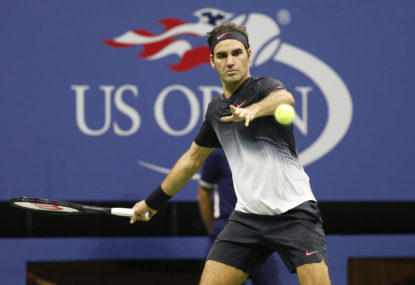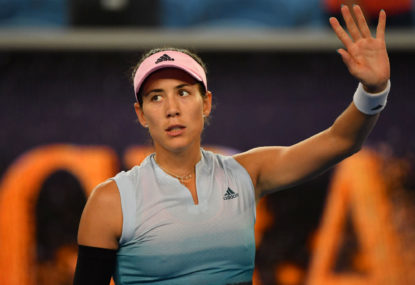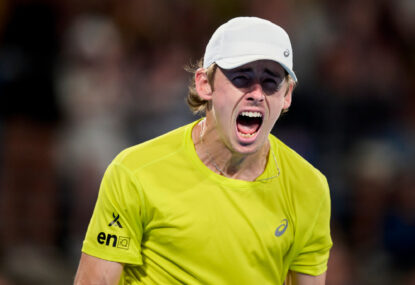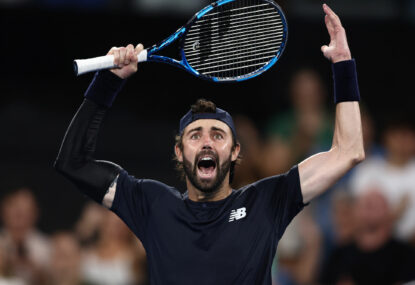The crowd is silent. The air tingles with excitement. Championship point. The sound of the ball hitting the strings sends goosebumps up spectators’ arms. The yellow dot flies across the court at 200 km/h. Back and forth, the ball dances about the court. It feels as if the rally will never end. Each shot better than the previous and suddenly, the ball rises to the clouds…
The concept of the stereotypical athlete being fresh out of school at the ripe old age of 19 or 20, then dominating a sport and retiring before 30, has changed.
Sports like tennis, cricket and football have altered how viewers perceive the correct age to ‘leave the game’. Back in 1986, the average age to retire from football was 27. This has since changed according to FIFA, who stated that the average age to retire now was 32.
The main purpose for me writing to you today, is on behalf of my uncle. Looking back at his past, he realised how stereotypes of younger athletes dominating sports resulted in his early retirement.
My uncle, John Owens, used to play in the NRL from 1981 to 1988. He played hooker for the Balmain Tigers.
Rugby is one of the most physically demanding sports to play, causing earlier retirement ages than sports such as tennis.
In his era, most of his friends retired from the game at 28. In fact, he was one the of the oldest to leave the club at 30. When speaking to him earlier this month about whether the younger generations dominate the sport – he said, “it’s bollocks”.
John talked about how it all depends on your “belief, determination and how your body holds up”. In sports such as rugby, injury is a massive part of how people perform. This will result in players tending to find lower levels of form towards the end of their careers.
This ultimately leads to an early retirement from professional sport. This does not mean that all athletes must retire at a younger age.
My uncle fell into the trap of following other people and not doing what he felt was right. However, this is changing as different sports offer different opportunities.
[latest_videos_strip category=”rugby-league” name=”Rugby-League”]
We can see how the stereotypical age barriers have changed in sports.
Looking at football, Gianluigi Buffon is one man challenging the idea that young people dominate sports. At 41, he is still a force in the world of football.
Buffon still plays for Italian supergiant Juventus, leading them to numerous cup titles as their captain.
Last year he was announced as the UEFA Champions League goalkeeper of the year, making him the oldest ever player to win this award.
Buffon inspires millions around the globe every day. He has re-written the history books at an age where people have said to him, ‘just quit now’. This has changed people’s perspectives of the ‘young gun’ dominating sports.
Tennis models this too. The last time a male won a tennis Grand Slam aged under 20 was in 2005 when Rafael Nadal won the French Open for the first time at 19 years of age.
Since then, the average age for a Grand Slam champion has risen to 28. Also, the average retirement age in both men’s and women’s tennis has changed to over 35.
Last year, every male Grand Slam championship win was by a player over the age of 30. The oldest male tennis player is 39-year-old Ivo Karlovic who is still ranked among the top 80 players in the world.
At 37, Venus Williams is the oldest female tennis player in the world and ranked Number 8.
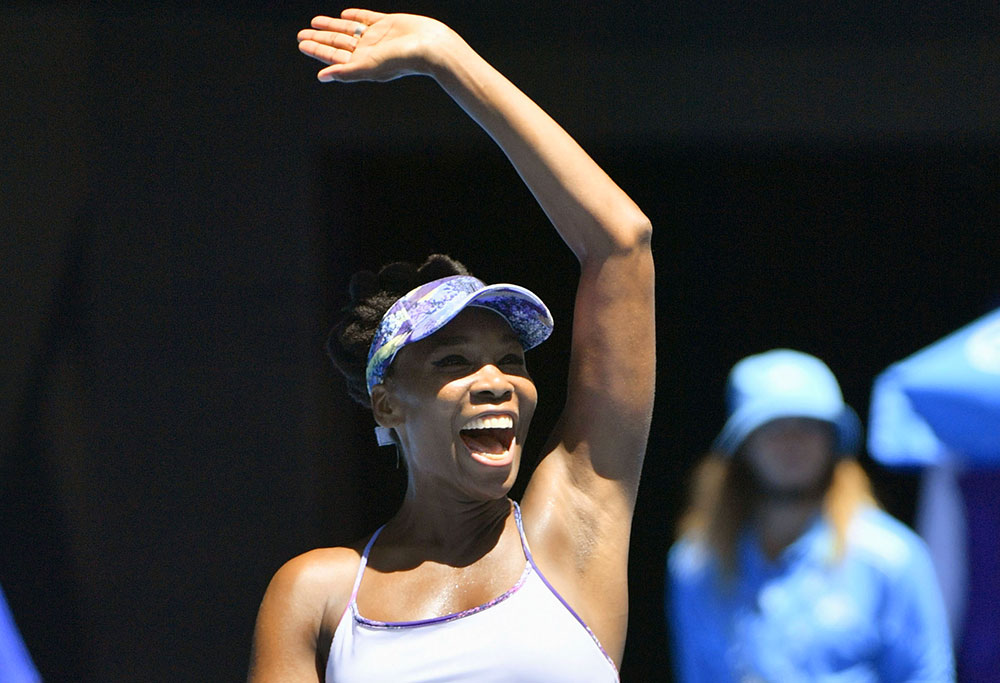
(Kyodo)
Looking at men’s tennis, and perhaps the most prime example of veteran domination is Roger Federer and his reign over the tennis world. Federer is currently the number one-ranked singles tennis player in the world, accruing 20 Grand Slams – two of which were won last year at the age of 36.
This brings forth the idea of the ‘age of experience’. This means that as athletes age, they do not need to leave their chosen sport and could act as leaders for the rising younger athletes.
Most young athletes don’t have much experience in playing the greatest. The ‘older’ athletes tend to have the experience needed to overcome adversity and win matches.
This leads to the older athletes dominating a variety of sporting codes. Their natural ability, skill and immeasurable belief leads them to greatness over the younger sportspeople.
Some of the younger generation does tend to pop out of nowhere to make a statement in the sports world. Latvia’s Jelena Ostapenko won the French Open last year at the age of 19.
Also, athletes such as Lionel Messi and Sachin Tendulkar have consistently dominated the world of football and cricket since making it to the big stage at 17.
However, these ‘special’ athletes are one in a billion and do not come around often. As the great Jackie Joyner-Kersee once said, “Age is no barrier. It’s a limitation you put on your mind”.
This then shows that the younger generations no longer dominate sports worldwide. The elite athletes who ‘should be retired’ are still competing at the highest levels and have proven to the world that age doesn’t have to be a person’s ability. They prove that with age comes great experience.
…Federer lines up the smash. The spectators are on the edge of their seats. Thump, he smacks a winner down the line to win the Australian Open. The crowd roars, the atmosphere is electric. He has just re-written the history books.






























































































